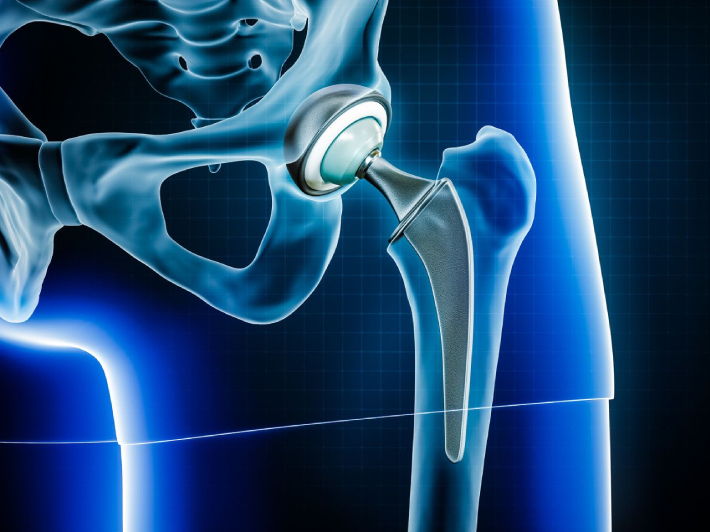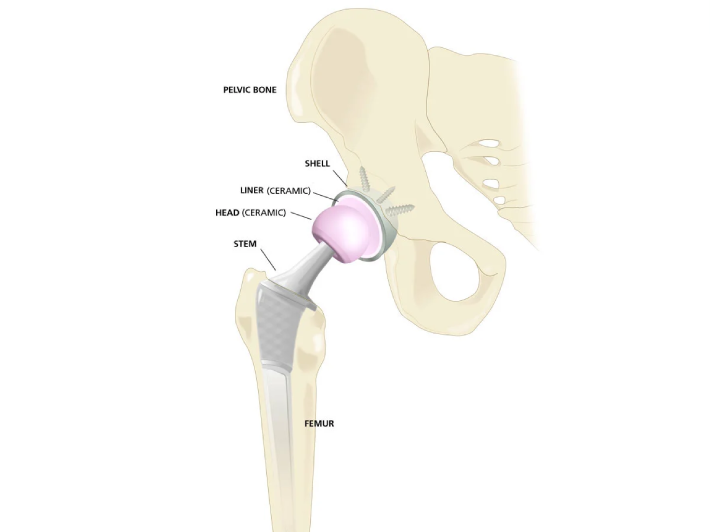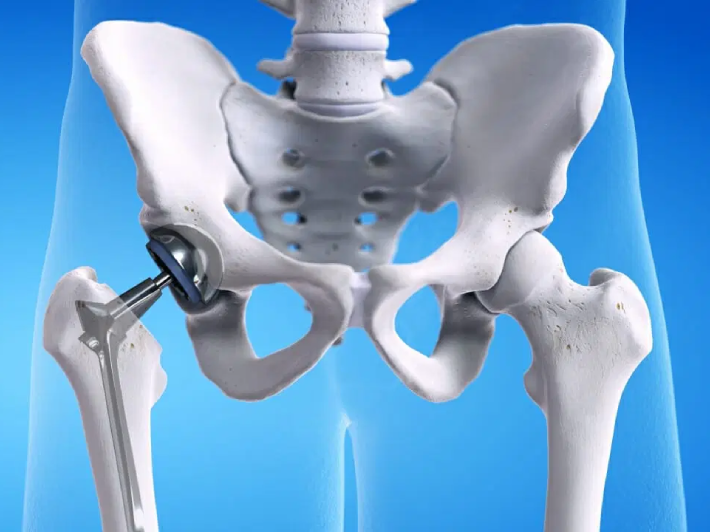Hip Implants
Advanced hip implants ensuring comfort, mobility, and long-lasting durability.



Hip Implants
The hip joint can get affected due to a rheumatoid disease or spondylitis. The replacement surgery is a method of removing the damaged exterior of the joint and replacing it with artificial ball and sockets. The pain is caused when the surface of the joint gets damaged. In case of a total replacement, the head of the thigh bone as well as the surface of the pelvis are replaced. The ball is made of ceramic or metal while the socket is made of either metal, plastic or ceramic.
Hip replacements can be of three types: bipolar, total, and surface. The bipolar replacement surgery involves replacing the head of the femur while the surface replacement includes shaving off the head of the femur bone and capping it. The surgeons scrape off the head of the pelvis socket and use a metal lining to resurface it. In the total hip replacement surgery, the entire ball and socket joint has to be resurfaced.
Pain is the main indication that there is something wrong with the hip joint. The pain can be in the front of butt or in front of the thigh. You will need to consult a doctor and if the patient is suffering from osteoarthritis or rheumatoid arthritis then surgery may be necessary.
Regular exercises and proper care of health is necessary to avoid arthritis which affects the joints.
- Climb stairs at a slow pace
- Do aerobic exercises at a gentle pace
These exercises will ensure that the joints in the hip get adequately oiled and will help delay the hip replacement surgery. However, if the pain is unbearable or if the pain is restricting your movement, then surgery is the best recourse.
